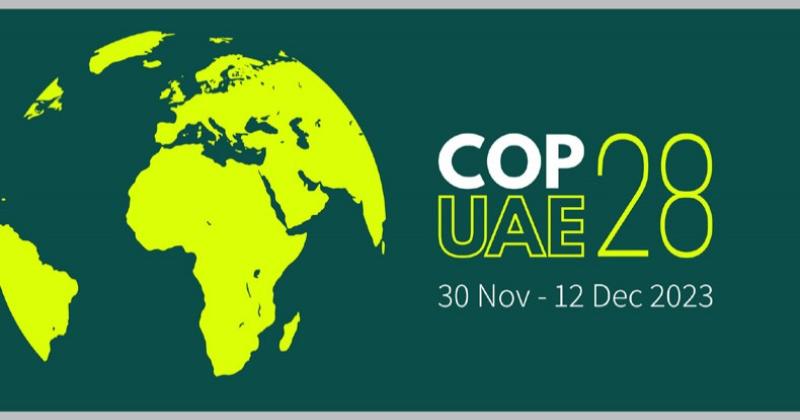With a world torn apart by conflicts and violence raging in several parts of the world, world leaders have continued to hold successive meetings in various parts of the world trying to find precipitous solutions that would put out the flames of the current conflagrations.
In the midst of prevailing grave situations which seem to drift the world into a ghastly abyss, a glimmer of hope emerges with the launching of the UN climate change conference in the United Arab Emirates, namely the 2023 United Nations Climate Change Conference (COP28). During the course of the global meetings, the leaders will hopefully find an opportunity to identify global solutions for limiting global temperature rise to1.5 degrees as well as to advise nationally determined contributions due by 2025 to accelerate the green transition. It is also important to promote a comprehensive plan to address the impacts of climate change on health, including mental and phyco-social well-being, loss of livelihood and climate-induced migration.
Among the major conundrums inflicting humanity is the emergence of a severe state of starvation that inflicts several countries, particularly in Africa. Various media networks have been explicitly and heavily carrying reports relevant to an emerging serious problem relevant to global food shortages associated with skyrocketing prices that cause exorbitant financial burdens on large segments of societies worldwide. This situation adversely affects peoples who find themselves unable to ensure food sufficiency, while suffering from empty stomachs, consequently failing to meet the basic needs of life.
It is important, in this regard, to bear in mind that empty stomachs make people unproductive because food is an energetic factor that motivates people to work, as well ensures safe and healthy societies. With violence and wars currently engulfing various parts of world, the phenomenon that has been persistent all the time is that wars and starvation go hand-in-hand. This is a very bad scenario that is triggered by social instabilities.
What adds salt to injury is the drastic consequences of climate change which includes higher temperatures, changing rainfall patterns, and more frequent extreme weather events such as droughts in some parts of the world and flash floods in others which makes food security at stake.
It is important in this regard to deeply grasp His Holiness Pope Francis words on the World Day of the Poor, November 15, 2020, when he said, "We must do good, to come to ourselves and look, look at those who have more need. There is so much hunger, even in the heart of our cities. Many times, we enter into that logic of indifference: The poor is there, and we look the other way."
During his meeting with ambassadors newly-accredited to the Holy See, on December 7, 2023, Pope Francis reiterated his hope that world leaders at COP28 in Dubai will agree on concrete measures to curb climate change. He focused on climate change and the devastation of the natural environment expressing the Holy See’s concern for its impact on the most vulnerable. He said, “May, COP28 represent a historic step forward in responding with wisdom and foresight to these clear and present threats to the universal common good… the future of us all depends on the present that we now choose”.
World leaders are invited to look for a panacea that would extricate world nations from the scourge of starvation, as starvation prods nations to rise one against the other to secure food sufficiency. On the other hand, it is imperative to have nations adopt fruitful plans that would wean them off relying on import of food products from foreign countries because this option is never guaranteed in the long-run. The viable option is to have poor countries launch projects designed to ensure food self-sufficiency by initiating sustainable agricultural projects that guarantee production of sufficient amounts of food which consequently eliminates the specter of famine.
Exorbitant sums of money are being spent on armament while little is spent on the means that maintain human dignity with regards to meeting all the needs of life on top of which is ensuring the availability of foods that can fill the stomachs of the poor and the needy who work day and night to ensure a better future for their families.
The first step that guarantees the attainment of food security is exerting efforts in the direction of cementing peace among troubled nations, and consequently beefing up productive projects that ensure a better future for troubled nations. Entrenchment of peace serves as the turning point that marks a good start for launching projects that would help in the production of food. With genuine peace attained, funds would be funneled in projects that would ensure a life characterized by equality, justice, and respect for human life.
The world peoples currently focus their eyes on the outcome of COP28 in the hops that it may extricate the world from its current imbroglio of food insufficiency, and help undertake concrete measures that would reverse the deteriorating climate conditions.
